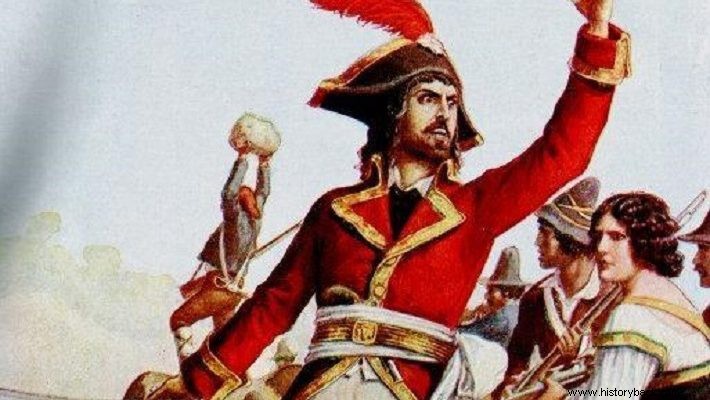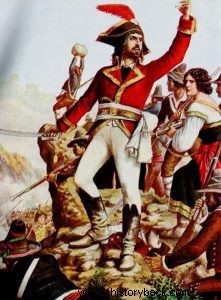
Michele Penza was born in 1771. He was the son of a peasant family of average economic status. As a child he became seriously ill. His parents worshiped a local saint and when little Michele was saved they dressed him as a monk on the second Sunday after Easter, as was the local tradition. But because he was naughty someone called him Fra Diablo (devil monk).
That's how they "stuck" the said nickname with which he was destined to go down in history. He knew how to read and write, something important for the farmers of Calabria, at that time and worked as a postman in the corresponding service of the kingdom.
In 1797 he killed two men, a rebel and a friend of his ambusher. He was tried and as punishment was sent to serve in the army. He was soon promoted to sergeant and in 1798 took part in the campaign against the French in the territory of the Papal States.
The army of the Kingdom of the Two Sicilies was defeated and dispersed during the retreat. But Penza fought well. He particularly distinguished himself in conflicts with the pursuing French, also forming a corps of peasants. He managed to escape from the French saving his men.
On January 22, 1799, something happened that scarred him. The French brutally killed a group of peasants who tried to resist the devastation they were causing. The French sacked the small town of Itri and killed over 60 civilians, old men, women and children. Among the dead was Penza's elderly father.
In February 1799 5,000 British and Neapolitan soldiers landed in Calabria from Sicily. Immediately the inhabitants rose up against the French. Young, old, women, men, children, rich, poor, clergy, formed the "Christian Army of the Holy Faith" and began to mercilessly beat the French.
Penza formed a small body which he commanded under the orders of the regular troops. But soon his corps numbered 4,000 men at the head of whom he carried out particularly daring raids against the French, as a result of which they remembered his nickname and called him Fra Diabolo again.
Together with British and Neapolitan regular soldiers he participated in the liberation of Naples from the French gaining fame. It was a particularly fierce campaign that cost the lives of at least 50,000 people on both sides.
However, Penza and his men were also noted for their ferocity. Many Frenchmen fell dead from their knives, even a high-ranking officer. After the departure of the French, he returned to his home a little later and got married, having been named an honorary colonel.
New French invasion
During the new French invasion in 1806 he returned to action forming a rebel group again. After the Battle of Maida where the British defeated the French in Calabria. The Calabrians rallied, but the British were eventually forced to withdraw, leaving their rebel allies alone.
Fra Diabolo, however, did not lose his courage. On September 5, 1806, he achieved a great victory against the French. But then the French came back fiercer and ready to take revenge. They hit Penza and his men from three sides. Over 100 rebels were killed and 60 captured. The prisoners were immediately murdered by the French.
Penza managed to escape to the Ambrusian mountains and form a new group thanks to his reputation. But the French continued to pursue him silently. On October 24, 1806, in a new battle, they prevailed. Most of Fra Diabolo's men fought to the death and fell.
He himself was injured. He managed to escape again but on November 1, after treason, he was arrested . The French offered him large sums of money to pass into their camp, but he proudly refused . The French refused even to exchange him for 200 of their own prisoners.
He was finally hanged on November 9, 1806. However, the rebellion did not stop and continued to devour the bowels of the French occupation until 1815, when the French withdrew.

Michele Penza, known as Fra Diabolo.
